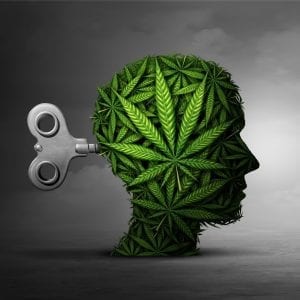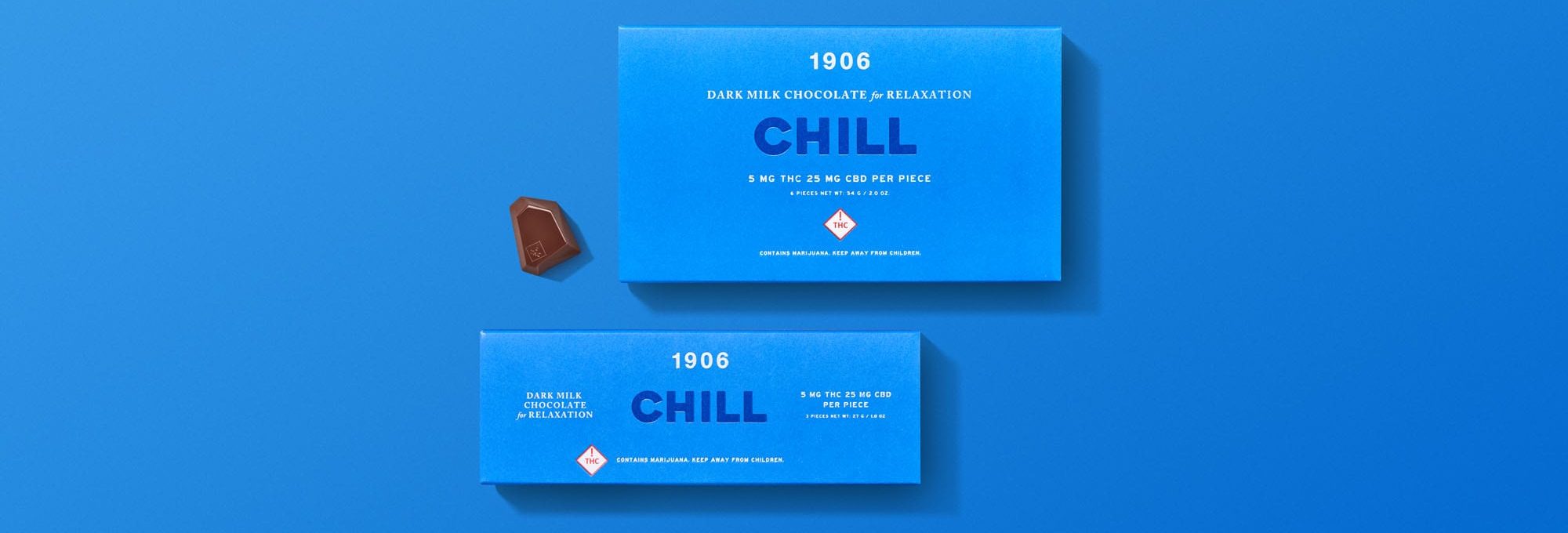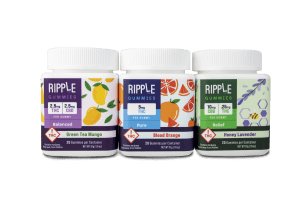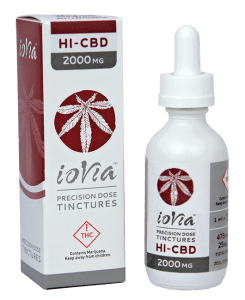As cannabis continues to spread across the United States and the globe, we are starting to see it touted as a one size fits all cure for many diseases and conditions. Although cannabis can help people with different diseases and conditions, it is important to remain skeptical as new uses for these compounds are brought forward without any scientific backing to support them. One condition that has become one of the main pillars of cannabis medicine is anxiety. Anxiety is something that we all face throughout our lives, and honestly, it is a totally necessary part of being a living, breathing human being. Anxiety is our body’s natural response to stress and in many ways is the primary cognitive function that keeps us safe. “Fear and anxiety are adaptive responses essential to coping with threats to survival. Yet excessive or persistent fear may be maladaptive, leading to disability” (Blessings, Esther M., et al). It is this excess of fear where anxiety changes from a helpful, adaptive response to a debilitating condition that a large portion of the human population suffers from. While we know that cannabis has a relationship with anxiety, it is not clear what that relationship is. Cannabis is commonly used to combat anxiety, but many consumers also report that cannabis, specifically highly potent THC cannabis is a major cause of anxiety. In this article, we will examine this relationship and the potential for cannabis as an anti-anxiety reliever.

So, just how prevalent are anxiety disorders? It turns out they are quite prevalent. Anxiety is a blanket term for a group of disorders centered around an excessive amount of anxiety or fear. The most predominant disorders causing anxiety are; generalized anxiety disorder (GAD), panic disorder (PD), post-traumatic stress disorder (PTSD), social anxiety disorder (SAD), and obsessive-compulsive disorder (OCD). “Together, they have a lifetime prevalence in the United States of 29%, the highest of any mental disorder, and constitute an immense social and economic burden” (Blessings, Esther M., et al). With just over 1 in 4 Americans suffering from these disorders, it makes sense that treating these disorders is a high priority for holistic practitioners, medical doctors, and pharmaceutical companies. Treating anxiety has proven to be a difficult task, as people experience anxiety for so many different reasons. The reasons an individual experiences anxiety are as unique as the individual. This makes treating anxiety with a one size fits all approach almost impossible. Despite this, this is generally how anxiety is dealt with in the United States. For most, anxiety is treated with a pill. There are dozens of anti-anxiety medications on the market and they are common residents of medicine cabinets across the United States. While anxiety medications are helpful, they only help mask anxiety. They do not cure it. Due to the complexity of anxiety, a multifaceted approach is often needed to get to the root of the cause.
To start, you must know that cannabis is not going to cure your anxiety. Neither is your anti-anxiety medication. These compounds are simply tools to help you on your journey of mental healing. If you experience anxiety, there are reasons why you experience it. For many, these are past experiences, traumas or learned responses that have become part of an individual’s everyday brain function. To truly heal anxiety, one would need to get to the root cause of their anxiety either by working with a mental health professional or by creating mindful practices in their life like a stable daily routine, yoga, meditation, exercise or group therapy. If you are wanting to use cannabis to help you in this, we are all for it. However, we strongly suggest using it in conjunction with some type of psychotherapy or mindful practice to get to the root cause of your disorder. Many people think that cannabis is going to solve all of their problems. The truth is, to heal yourself mentally, you must be willing to put in the work and deal with your issues. Cannabis is a great tool to help you on this journey, but it will not be the cure for your anxiety.

So how does cannabis interact with anxiety? The answer is we are not exactly sure. Cannabis is a unique medicine as it is made up of many different compounds as opposed to a single compound which is the basis of pharmacology. The way these compounds interact with your endocannabinoid system dictates the effect the consumer is going to feel and experience. There are two types of cannabinoids. Endocannabinoids are created in the brain, and phytocannabinoids are created in the cannabis plant. The endocannabinoid system is responsible for regulating many different physiological functions in the body but it is also an integral part of regulating emotional behavior as well. It does this by activating the different receptors in the brain and body, (CB-1, CB-2, TRPV-1) by using endocannabinoids created by the brain (Anandamide and 2-AG). “Endocannabinoids appear to modulate highly interactive stress and reward networks, consisting of the endocannabinoid system, dopamine system, and hypothalamo-pituitary-adrenocortical axis. These networks establish the balance between distress and well-being” (Stoner, Susan A.). When a consumer consumes cannabis, the phytocannabinoids from that plant interact with this system creating effects similar to those created by the endocannabinoids. By using phytocannabinoids (cannabinoids from the cannabis plant) to modulate this system, theoretically, we should be able to achieve a medication that will significantly decrease anxiety in the consumer.
If cannabinoids can be used to modulate the endocannabinoid system to decrease anxiety, then how come anxiety is one of the most commonly associated side effects of cannabis use? While we know the potential of these compounds to be an effective anxiety medicine, we are still lacking the knowledge of proper dosing, as well as information about how different ratios of these compounds work together to best achieve an anxiolytic (anti-anxiety) effect. In a 2017 report on cannabis and anxiety, “THC appears to decrease anxiety at lower doses and increase anxiety at higher doses. CBD appears to decrease anxiety at all doses that were tested” (Stoner, Susan A). The reason for these findings appears to be the way in which THC and CBD interact and stimulate the CB-1, CB-2 and TRPV-1 receptors in the endocannabinoid system. The stimulation of the CB-1 and TRPV1 receptor by a high dose of THC mimics the effects of a large dose of anandamide which is made in the brain. It appears that THC can, in fact, trigger an anxiety-inducing effect at high doses. Unfortunately, a “high dose” is going to be different for everyone and you will need to experiment with dosing to discover what is right for you. That being said, it does appear that THC can also decrease anxiety when taken at a low dose. This means we shouldn’t count THC out as an effective cannabinoid for combatting anxiety especially when present in a ratio of CBD and THC.

THC has a complex relationship with anxiety due to its biphasic effects at different doses, but it’s counterpart CBD seems to have a much more promising outlook when talking about anxiety reduction. “While THC can increase anxiety in some patients, it lowers it in others. However, CBD has been shown to consistently reduce anxiety when present in higher concentrations in the cannabis plant. On its own, CBD has been shown in a number of animal and human studies to lessen anxiety” (Birnbaum, Leinow). This is great news for those wanting to use cannabis to combat anxiety without the intoxicating effects associated with its use. As mentioned in THC & CBD: A Symbiotic Relationship, “A 2012 research review assessed a number of international studies and concluded that CBD has been shown to reduce anxiety, and in particular social anxiety, in multiple studies and called for more clinical trials” (Birnbaum, Leinow). This effect on social anxiety could be a promising solution for adults who suffer from social anxiety, or even children who are having trouble connecting with other children due to social anxiety.
 Cannabis and anxiety have a complex relationship and it is still unclear exactly how that relationship works. Cannabis, being body chemistry specific, has a different effect on all consumers. Some consumers can use high THC cannabis to combat their anxiety while others feel overwhelmed by the anxiety that consuming THC gives them. CBD does seem to be a safer alternative for those looking for anxiety relief. When using cannabis to combat an ailment like anxiety, you will need to do some experimentation to figure out what exactly is going to work best for you. With the information we have, we suggest using a high CBD product with low THC if any at all. If you are a person that gets anxiety from THC, try to find a product that has a ratio of 20:1, 50:1 or 100:1 CBD to THC. There are many different tinctures on the market that will work for this, as well as many full-spectrum CBD tinctures that will have just enough THC to help stimulate the ECS but not create the heightened anxiety associated with THC consumption. Tinctures and ingestible products are great for all-day relief as they are discreet as well as long-lasting, however, if you are looking for immediate relief, a CBD vaporizer will work well for that application. To learn more about different consumption methods, see our article, Bioavailability and Consumption Methods – What’s Right for You?
Cannabis and anxiety have a complex relationship and it is still unclear exactly how that relationship works. Cannabis, being body chemistry specific, has a different effect on all consumers. Some consumers can use high THC cannabis to combat their anxiety while others feel overwhelmed by the anxiety that consuming THC gives them. CBD does seem to be a safer alternative for those looking for anxiety relief. When using cannabis to combat an ailment like anxiety, you will need to do some experimentation to figure out what exactly is going to work best for you. With the information we have, we suggest using a high CBD product with low THC if any at all. If you are a person that gets anxiety from THC, try to find a product that has a ratio of 20:1, 50:1 or 100:1 CBD to THC. There are many different tinctures on the market that will work for this, as well as many full-spectrum CBD tinctures that will have just enough THC to help stimulate the ECS but not create the heightened anxiety associated with THC consumption. Tinctures and ingestible products are great for all-day relief as they are discreet as well as long-lasting, however, if you are looking for immediate relief, a CBD vaporizer will work well for that application. To learn more about different consumption methods, see our article, Bioavailability and Consumption Methods – What’s Right for You?
In Colorado, there is an assortment of products, produced in the state, that you can explore to see what works best for your own particular body chemistry. Products that we have seen lower anxiety and create a sense of calm are; 1906 CHILL, Iovia Precision Dose Tinctures (High CBD or Blend of CBD THC 1:1 ratio), and Stillwater Ripple low dose gummies and water-soluble packets. These products can be found at many Colorado dispensaries. If you live in a nonlegal state NED Full Spectrum Tincture taken daily will help provide harmony in the mind and body. A recommended wellness dose for a full spectrum tincture is 1/4 of your bodyweight = milligrams per day. To learn more about Healing with Cannabis – Full Spectrum vs Isolate Extracts.
Like mentioned before, if you are using cannabis to help with anxiety, we highly suggest taking your healing a step further by implementing mindful practices in your life, and/or seeking the help of a mental health professional. Healing is a holistic process and often requires a multifaceted approach. Many of our guests and people who we have consulted throughout the years have seen incredible results when they have added therapy to their wellness regimen. Exercise also can pair well for combatting anxiety, and we are actually beginning to find that cannabis also has benefits when paired with exercise as well. Putting together a full wellness routine to take care of your mind, body, and spirit will have you on your way to better mental health and cannabis can help guide you in the right direction.
Continue your education on the relationship between cannabis and mental health in our next blog, Cannabis and Depression.
FOR A DEEPER DIVE INTO THE CANNABIS PLANT, ITS VARIOUS COMPOUNDS AND THE INDUSTRY THAT SURROUNDS IT, CALL AND BOOK YOUR PRIVATE EDUCATIONAL EXPERIENCE WITH CITY SESSIONS TODAY. 720-250-8828
Work Cited
Blessing, Esther M., et al. “Cannabidiol as a Potential Treatment for Anxiety Disorders.” SpringerLink, Springer US, 4 Sept. 2015, link.springer.com/article/10.1007%2Fs13311-015-0387-1?utm_medium=affiliate&utm_source=commission_junction&utm_campaign=3_nsn6445_brand_PID6166617&utm_content=de_textlink.
Stoner, Susan A. “Effects of Marijuana on Mental Health: Anxiety Disorders .” Alcohol and Drug Abuse Institute, June 2017, adai.uw.edu/pubs/pdf/2017mjanxiety.pdf.
BIRNBAUM, LEONARD LEINOW, AND JULIANA. CBD: a Patient’s Guide to Medicinal Cannabis-Healing without the High. READHOWYOUWANT COM LTD, 2019.
